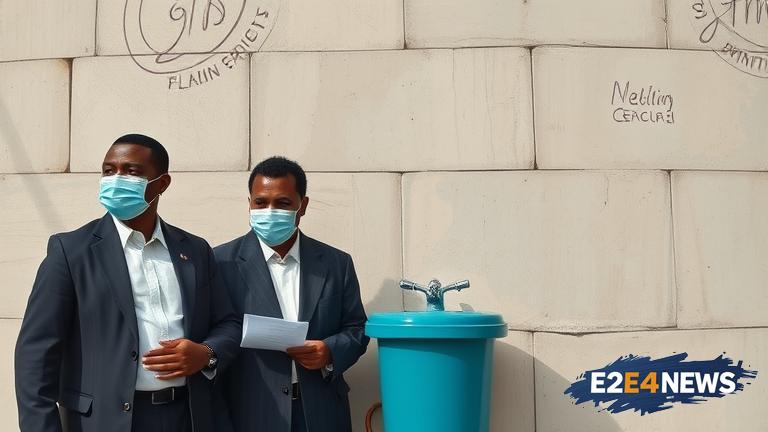In a recent development, lawyers in Rivers State, Nigeria, have voiced their opposition to the monthly sanitation exercise, which prohibits movement and economic activities during its duration. The exercise, aimed at maintaining environmental cleanliness, has been in place for several years. However, the lawyers argue that the restrictions imposed during this period infringe upon the fundamental human rights of citizens, including the right to freedom of movement and the right to engage in economic activities. They contend that the exercise, although well-intentioned, has significant negative consequences on the daily lives of residents, particularly those whose livelihoods depend on their ability to move freely and conduct business. The lawyers also point out that the restrictions have a disproportionate impact on low-income individuals and small business owners, who rely on daily sales to sustain themselves and their families. Furthermore, they argue that the exercise does not effectively address the underlying issues of environmental degradation and poor waste management in the state. Instead, it merely provides a temporary solution, while the root causes of the problem remain unaddressed. The lawyers are calling for a review of the sanitation exercise, with a view to finding alternative solutions that balance the need for environmental cleanliness with the need to protect human rights and promote economic activities. They suggest that the government should engage in more effective waste management strategies, such as investing in modern waste disposal facilities and implementing recycling programs. Additionally, they propose that the government should provide support to small business owners and low-income individuals, to help them adapt to any changes in the sanitation exercise. The lawyers’ concerns are not limited to the economic impacts of the exercise, but also extend to the potential health risks associated with the restrictions. They argue that the prohibition on movement can lead to delays in accessing medical care, particularly in emergency situations. Moreover, the restrictions can also exacerbate the spread of diseases, as people are forced to congregate in small areas, increasing the risk of transmission. The lawyers are urging the government to reconsider the monthly sanitation exercise, in light of its far-reaching consequences on the lives of citizens. They emphasize that any measures aimed at promoting environmental cleanliness must be balanced against the need to protect human rights and promote economic development. The government, on the other hand, has defended the sanitation exercise, citing its importance in maintaining a clean and healthy environment. However, the lawyers remain unconvinced, arguing that the government’s approach is misguided and that alternative solutions must be explored. As the debate continues, it remains to be seen how the government will respond to the lawyers’ concerns and whether a review of the sanitation exercise will be undertaken. In the meantime, the lawyers will continue to advocate for the rights of citizens, ensuring that any measures aimed at promoting environmental cleanliness do not come at the expense of human rights and economic development. The situation highlights the complex interplay between environmental protection, human rights, and economic development, and the need for a balanced approach that takes into account the diverse needs and interests of all stakeholders. Ultimately, the goal should be to find solutions that promote environmental sustainability, while also protecting human rights and promoting economic growth. The lawyers’ opposition to the sanitation exercise serves as a reminder that environmental protection must be pursued in a manner that is consistent with human rights and economic development. By engaging in a constructive dialogue, it is possible to find alternative solutions that address the concerns of all parties involved. The government, lawyers, and other stakeholders must work together to find a balanced approach that promotes environmental cleanliness, while also protecting human rights and promoting economic activities. This can be achieved through a combination of effective waste management strategies, support for small business owners and low-income individuals, and a commitment to protecting human rights. As Nigeria continues to grapple with the challenges of environmental degradation and economic development, the situation in Rivers State serves as a reminder of the need for a balanced approach that takes into account the diverse needs and interests of all stakeholders.
